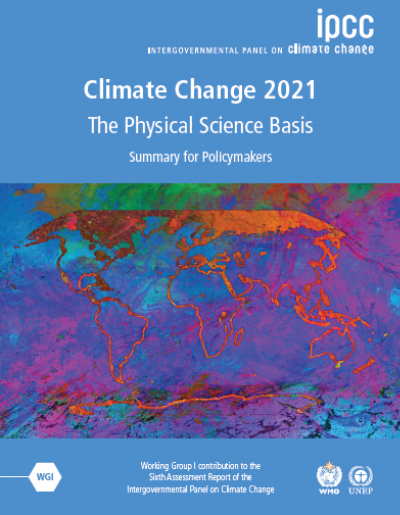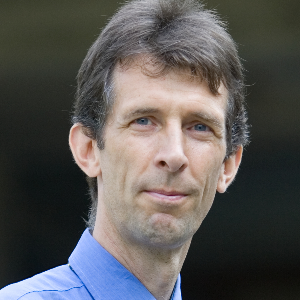


On 9 August 2021, the IPCC released the first part of its Sixth Assessment Report (AR6), focusing on ‘Climate Change 2021: the Physical Science Basis’. The report, prepared by 234 authors from 66 countries and citing more than 14,000 references, has been approved by the 195 member governments of the IPCC.
The report gives the strongest evidence yet that greenhouse gas emissions are contributing to climate change, and confirms that scientists are now observing changes in the Earth’s climate in every region and across the whole climate system. Many of the climate changes observed are unprecedented in thousands, if not hundreds of thousands of years, concludes the report, and some of the changes already set in motion – such as continued sea level rise – are irreversible over a time-frame of hundreds to thousands of years.
The report shows that emissions of greenhouse gases from human activities are responsible for approximately 1.1°C of warming since 1850-1900, and finds that averaged over the next 20 years, global temperature is expected to reach or exceed 1.5°C of warming – the preferred limit agreed by nations signing in the 2015 Paris Climate Agreement. It also provides new estimates of the chances of crossing the 1.5°C level in the next decades, and provides a stark warning that unless there are immediate, rapid and large-scale reductions in greenhouse gas emissions, limiting warming to close to 1.5°C or even 2°C will be beyond reach.
At 1.5°C of global warming, there will be increasing heat waves, longer warm seasons and shorter cold seasons. At 2°C of global warming, heat extremes would more often reach critical tolerance thresholds for agriculture and health, the report shows.
The new report also reflects major advances in the science of attribution – understanding the role of climate change in intensifying specific weather and climate events such as extreme heat waves and heavy rainfall events.
As the Chair of the IPCC, Hoesung Lee, said: “The innovations in this report, and advances in climate science that it reflects, provide an invaluable input into climate negotiations and decision-making.”
Climate-related work by IAP and its regional networks
It is exactly this idea of providing syntheses of the most up-to-date scientific information and making it available to policy-makers to aid their decision-making that is at the core of the work of IAP.
IAP’s regional networks have also been active in the area of climate change.
Other networks of academies that have weighed in on climate change issues include those of the G7 countries who together released statement on A net zero climate-resilient future – science, technology and the solutions for change in March 2021 on the occasion of the UK hosting the G7 Heads of State.
Also on this theme, and linking to the other ongoing global crisis – the Covid-19 pandemic, IAP released a Communiqué on Global Green Recovery After COVID-19 that calls for activities to re-boot economies after the pandemic to be designed to generate co-benefits for social equity, the environment and human health.
Finally, as laid out in the 2017 IAP Statement on Climate Change and Education, none of the above will be possible if the next generation lacks an understanding of the issue of climate change, which should be taught in an interdisciplinary way across all school syllabi. As the Statement concludes: “Teaching [children] to act with a critical mind and a hopeful heart, is essential for the future of humanity.”
For more information on the IPCC Sixth Assessment Report, visit: https://www.ipcc.ch/assessment-report/ar6/
